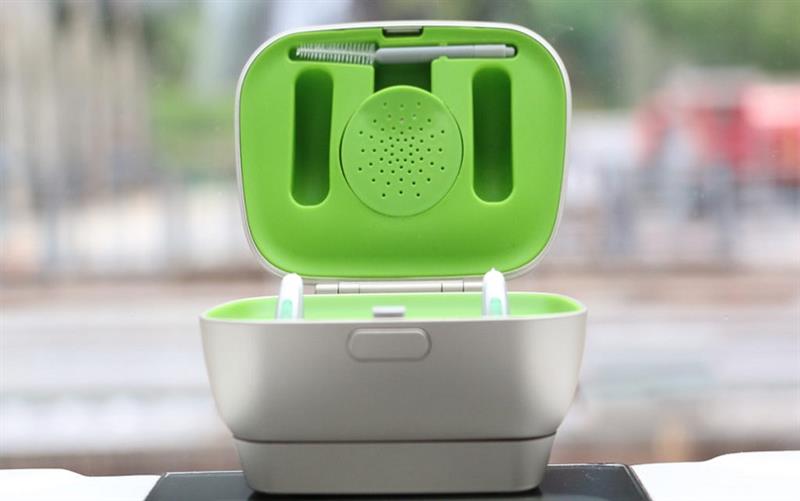
Your hearing aid batteries are one item you shouldn't ignore, regardless of whether you're thinking about wearing a hearing aid for the first time or have been wearing one for years.
Disposable Batteries Hearing Aids
Disposable batteries are available for all three varieties of hearing aids: in-the-ear (ITE), behind-the-ear (BTE), and receiver in the canal (RIC). This implies that regardless of the severity of your hearing loss—mild, moderate, severe, or profound—you can wear hearing aids with disposable batteries.
One benefit of using disposable batteries for hearing aids is that you don't have to keep your devices out or find a power source when the batteries run out.
The most popular kind of battery used in hearing aids is the disposable variety. They are an excellent choice for people on a tight budget because they are affordable and simple to locate. Nevertheless, they require more frequent replacement and have a shorter lifespan than rechargeable batteries.
Batteries for rechargeable hearing aids
Rechargeable batteries have quickly overtaken disposable batteries as the preferred method of powering hearing aids. More and more manufacturers of hearing aids are modifying their products to incorporate rechargeable power sources, thus these batteries are quickly emerging as the new norm.
Rechargeable batteries are included with certain hearing aids. With this kind, the hearing aid's battery—typically a lithium-ion battery—is integrated into the device, effectively making it rechargeable.
You can just put the hearing aid on charge when the charge runs low rather than taking out and replacing the battery.
Typically, to accomplish this, take out your hearing aids and attach them to a docking station, which needs to be plugged into a power source. The majority of individuals take off their hearing aids at night, which is an excellent time for them to fully charge.
How long do rechargeable batteries last for hearing aids?
The company, type, and manner in which you wear your hearing aids can all affect how long the battery lasts. For instance, utilizing Bluetooth to stream music can quickly drain your battery, just like it does with smartphones.
Long-term use of rechargeable hearing aid batteries means that each device will use the same battery. The battery is recharged in order to continue using it once it runs out of power. The battery has no effect on the environment because it is not disposed away.
1. Greater Durability
Rechargeable batteries can be a better choice if you're searching for a hearing aid battery that will last longer and cost you less money over time. You won't need to change rechargeable hearing aid batteries as frequently because they may be charged hundreds of times. Additionally, they often last longer than throwaway batteries, so you'll use them longer before needing to recharge them. You will need to consider the cost of rechargeable hearing aid batteries when making your choice, as they are more expensive than disposable ones.
2. Eco-friendly
Rechargeable hearing aid batteries are the best alternative if you're seeking for something more eco-friendly. Hearing aid batteries that are disposable wind up in landfills where they might leak chemicals into the earth and water. Rechargeable batteries are less harmful to the environment because they can be recycled.
3. No extra expenses
Hearing aid batteries can cost some users of hearing aids over $150 annually if they use them heavily! Rechargeable hearing aids require just one battery to operate for four to five years.
4. Less stress
If you wear hearing aids frequently, then you will appreciate how challenging it is to change the batteries every few days. To replace the old batteries in your hearing aids, you must first open them and take out the old ones. Those with poor vision or dexterity may find this problematic. Rechargeable batteries are far more convenient because all you have to do is put your aids in their charging case in the morning to have them completely charged.
5. Continuous use throughout the day
As previously noted, advances in lithium technology have made it possible to use a hearing aid for the most of the day. It is definitely possible to make it last the entire day with less than five hours of streaming.
6. Easy to access
Having overnight charging ensures that you never run out of electricity. Most likely, the charger will be an induction charger, which charges by just plugging in. No more trips to the pharmacy, no more packages of batteries to open, no more dropped batteries that roll under the sofa!
7. Improved for Your Hearing Aid
Additionally, rechargeable batteries are preferable for your hearing aid. Rechargeable batteries are less likely to leak and harm your hearing aid than disposable batteries. Rechargeable batteries are therefore the best option if you're searching for something that will work better for your hearing aid.
It's ideal to keep yourself as educated with your hearing aids and a new breakthrough in the technology. Ask your query via Book an Appointment today. For more information visit https://hearing.careinc.ca or you can call us today at (403)605-6300